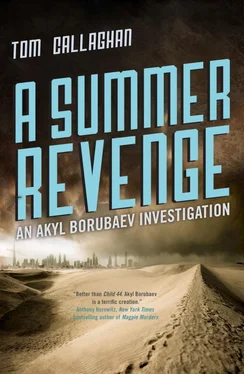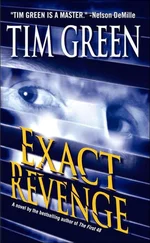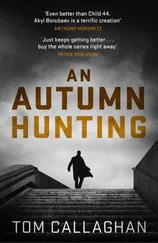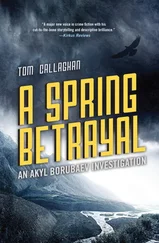“The thing is, Saltanat,” I said, the occasional giggle still escaping me like doves flying from a cage, “they say that the streets of Dubai are paved with gold. That this is the place where a man can come and make a fortune.”
“So?” she asked.
“Well, I came to Dubai. And I’m leaving it richer than I’ve ever been in my life.”
The voice at the other end of the phone was silent for a moment, and I wondered if I’d finally managed to disturb Saltanat’s composure. When she finally spoke, it was in the slow, measured speech of someone unsure of the sanity of the person they’re dealing with.
“What are you talking about?”
I managed to calm down long enough to speak.
“All the way through this thing Natasha has played the game absolutely right. Getting hold of Tynaliev’s unique codes and then changing them so that she had the only accurate copy anywhere in the world. A risk, of course, but not just from the minister and his hit men. If she’d been hit by a bus or killed in a plane crash, some offshore private bank would be ten million dollars better off, and with no one able to collect it.
“Then she had the equally brilliant idea of having the information transferred from a memory stick onto an ordinary SIM card. A memory stick might raise questions at customs, but everyone has a mobile phone. It wasn’t an ultra-modern smartphone either; a pickpocket would have turned their nose up at it. You know how if you want to hide something really cleverly, you hide it in plain sight, in full view of everyone. That was smart thinking number two.”
I paused, but there was no immediate response from Saltanat. Finally she spoke: “Go on.”
“She knew that Tynaliev would send someone after her, someone who might track her down and demand the codes. She never told me so, but Tynaliev must have told her about my role in catching the murderers of his daughter, and so she gambled that he’d send me. And I’m not known for breaking fingers in a soundproof basement room or improving a suspect’s memory with a little light electrocution. So she could take a risk on my not being a complete bastard.
“Finally, even if she wasn’t aware of the Chechen jihadis, she would know that a lot of people would want some of the millions she’d stolen. Once she’d given the SIM card to me, for ‘safekeeping,’ she could say if she was kidnapped that I was the one holding the codes. She’d distract attention from herself, and maybe even deal with the man sent to find her as well. All brilliantly thought out.”
“But if it was such a great plan, what went wrong? I don’t understand.”
“Natasha couldn’t reprogram the codes herself, so she found a dumb boob-struck young geek to do it for her, and rewarded him by pretending they’d had sex when he had passed out. Same trick she played on me. I couldn’t have hacked the codes myself—I can barely turn a computer on—but that doesn’t mean I don’t know someone who could.”
“So you changed the codes? You’ve had them all along?”
“Thanks to my friend Ermat, who teaches at the American University in Bishkek. Computer science. And part-time hacker into some of the world’s most secure computer systems. I caught him when I was working Vice, giving a minet to a lady in Panfilov Park who turned out to be a man. I reckoned better to have someone like that owing you a favor than one more disgraced academic. So yes, I’ve got the codes, and I’ve changed them back. So Tynaliev gets back most of his loot.”
There was a pause, which I took to be admiration. Finally Saltanat spoke: “You never fail to amaze me, Akyl. Every time I become convinced that you’re a bungling idiot who can’t even tie his own shoelaces, you pull something out of your hat.”
I decided to take that as a compliment rather than a comment on my fashion sense.
“So you’ve got all the money? Now what? Head off to Rio as well?”
“And run into a wrathful Natasha? Not something I’d recommend, having recently had her shoot me in the back.”
“Then what?”
I wondered about suggesting that she retire, that we go and live somewhere warm and remote and exotic. The idea flared up in my head like gasoline-soaked leaves; all it took was one spark. But I knew that for Saltanat retirement could never be an option. Weapons stashed close to hand wherever we lived, high-tech security systems, perpetual glances in the rearview mirror. It wasn’t how I wanted to live my life.
So I decided to tell her the truth.
“I’m not an idiot. If I stole Tynaliev’s money, I’d be as much of a target as Natasha. Maybe even more so, since I know some of his other secrets. I’d be top of his hit list the second he found out. So I’ve taken a small amount for expenses and left the rest intact. I’ll give him the new codes when I get back to Bishkek.”
“How small an amount?”
I paused then told her.
“A million dollars? Are you crazy? He’ll have your head stuffed and mounted on his office wall.”
“I don’t think so.”
“How can you be so sure?”
“Because Natasha had a complete file of all the transactions—where he skimmed the money, whose palms he greased. It was on the same card as the codes.”
“And now you’ve got it.”
It wasn’t a question.
“You’re taking a big chance, Akyl.”
I was silent. There have been days when the loss of Chinara has bitten at me with the ferocity of a chainsaw snapping back, others when the usually placid waters of Lake Issyk-Kul swirl into chaos with a winter storm. Some days the sun is so blinding, I’m dazzled into submission, others when fat flakes of snow make it impossible to see the path ahead. But I’ve learned that the only thing you can do is keep taking steps forward, one at a time. Maybe you test the ground underfoot first, maybe you just stride ahead, but if you want to survive, you simply keep on going.
“Saltanat…” I paused, swallowed, uncertain what I was about to say or how to say it. “I want to see you again.” I spoke into the silence, a lonely man sitting in a half-empty bar in the middle of the night. “I love you.” And realized I was talking to a dialing tone.
In the distance I could hear planes taking off, delivering their passengers to new destinations, new lives.
After all the events of the previous week, my flight back to Bishkek was uneventful. My temporary diplomatic status brought with it an upgrade and access to the business-class lounge, where I toyed with a couple of sandwiches and stared at expensive bottles of wine and champagne. But my mouth was dry and sour, as if I’d chewed on dried lemons, and the knots in my stomach twisted and turned as if trying to escape. There was an ominous buzzing in my ears, and my teeth ached like I was already in the soundproof basement room in Sverdlovsky police station, waiting for the iron door to open and the beatings to begin.
Blackmailing Tynaliev into doing nothing was something only a truly reckless, or stupid, man would attempt. But I didn’t feel I had any choice. I’d risked a lot by letting Natasha go; now it was time to take care of number one.
I tried to sleep on the plane, but with each minute that we drew closer to Manas airport, the more my nerves jangled. Finally, I gave up the attempt and stared unseeing out of the window at the featureless black outside.
After using the diplomatic channel at immigration, presumably for the last time, I walked out into the cold clean air. It was almost dawn, and the dark had lifted enough to smear the stars into fading specks of light. The first rays of the rising sun picked out the tops of the mountains with slowly growing clarity in the clear air, rising above humans’ petty squabbles with majestic indifference. They had been here long before us, and would remain long after we were not even a memory. I wondered if this was the last time I would ever see them.
Читать дальше












